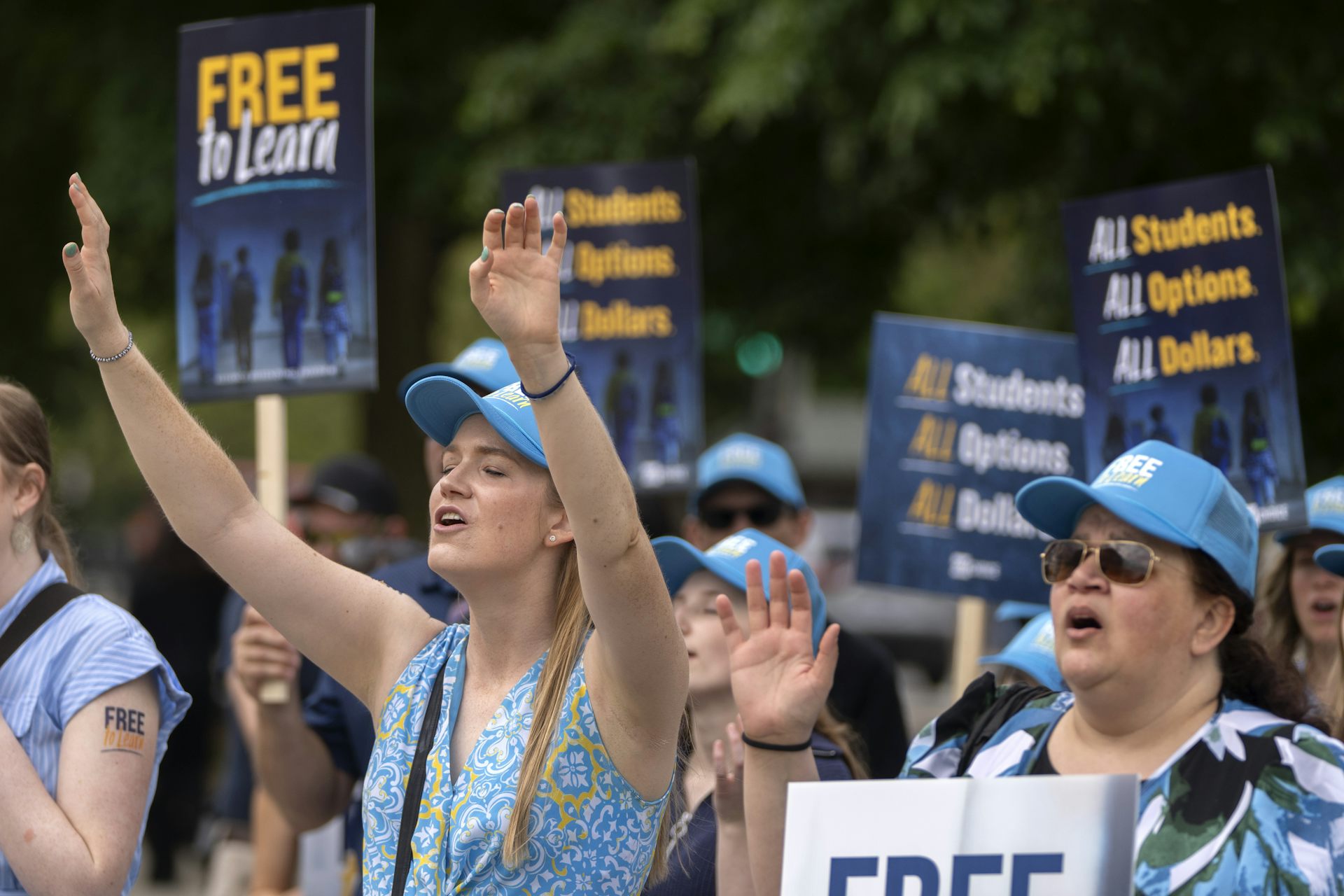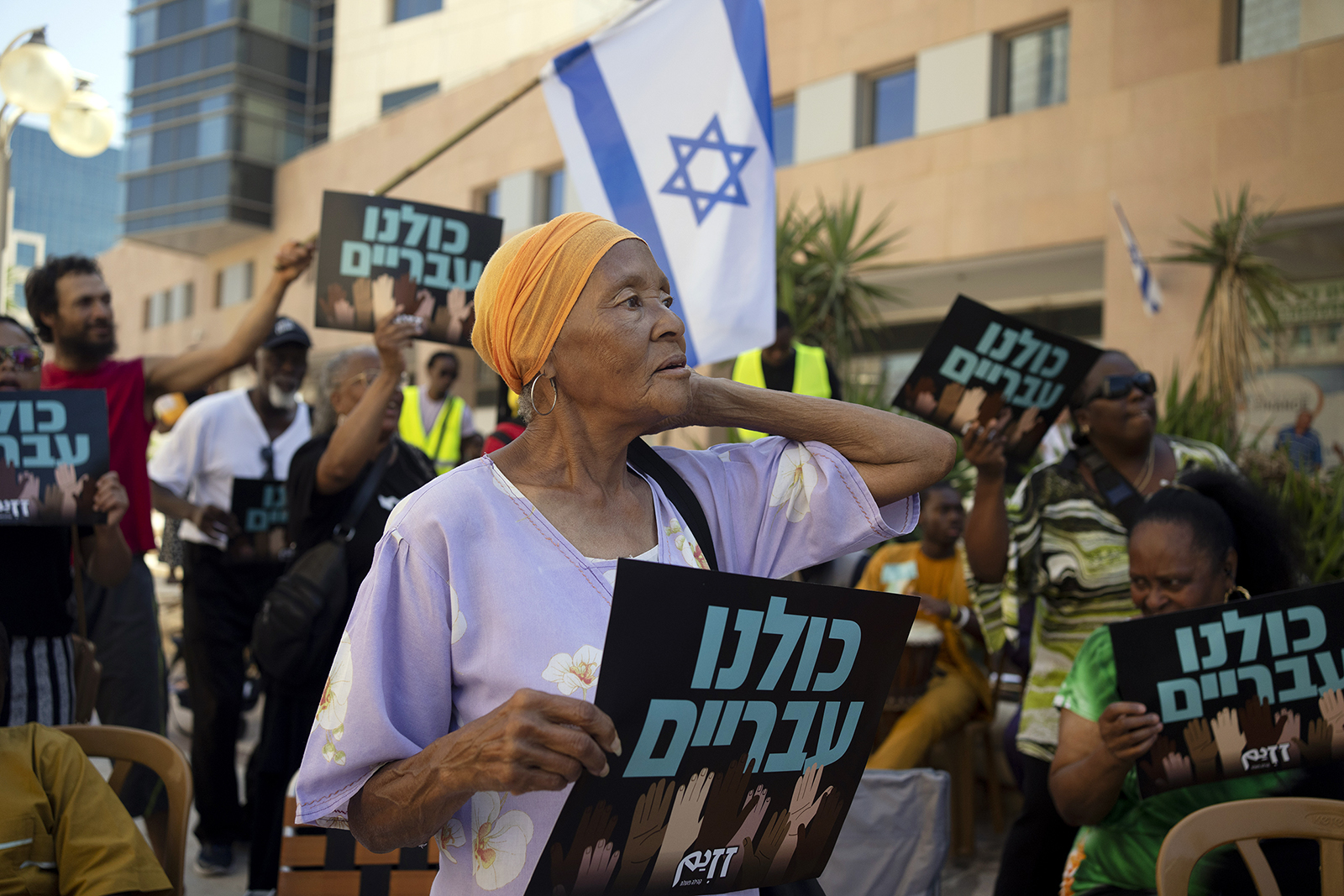Now Reading: Is a faith-based charter school a threat to religious freedom, or a necessity to uphold it? The weighty decision lies with the Supreme Court
-
01
Is a faith-based charter school a threat to religious freedom, or a necessity to uphold it? The weighty decision lies with the Supreme Court
Is a faith-based charter school a threat to religious freedom, or a necessity to uphold it? The weighty decision lies with the Supreme Court

As protestors gathered outside, the Supreme Court held discussions on April 30, 2025, regarding whether Oklahoma could establish the first faith-based charter school in the nation. The proposed St. Isidore of Seville would be a virtual K-12 school managed by the Roman Catholic Archdiocese of Oklahoma City and the Diocese of Tulsa.
Charter schools, which are typically public institutions funded by taxpayers, differ from regular public schools as they are exempt from many state regulations concerning curriculum and teacher qualifications. However, up to this point, charters, like other public schools, have been secular.
The legal dispute surrounding St. Isidore exposes a conflict within the First Amendment’s religion clauses, which state that “Congress shall make no law respecting an establishment of religion, or prohibiting the free exercise thereof.” While the free exercise clause guarantees individuals the freedom to believe as they choose, there is ongoing debate on what constitutes an “establishment” of religion.
The central question in this case is whether states can use public funds to enable parents to enroll their children in a faith-based charter school. Supporters are challenging a 2024 ruling from the Supreme Court of Oklahoma, which declared that a religious charter school violated state law, as well as the Oklahoma and federal constitutions.
Oklahoma Governor Kevin Stitt, a Republican who supports St. Isidore, has described the case as potentially one of the most momentous decisions concerning religious and educational freedom in our lifetime. Conversely, the attorney for the opponents of St. Isidore, led by Oklahoma Attorney General Gentner Drummond, who prevented the school’s opening, argued that a victory for St. Isidore could lead to states being obligated to fund and establish public religious schools, contradicting established legal precedents.
It remains to be seen whether a ruling in favor of St. Isidore would uphold religious freedom, as claimed by Stitt, or pose a threat. However, there is a growing expectation that taxpayer aid to faith-based institutions could expand following the recent arguments, where five of the eight participating justices seemed sympathetic to St. Isidore.
The Supreme Court is grappling with two main questions: whether a privately owned school working with the state to provide a free educational option should be considered state action and how the First Amendment religion clauses apply to a faith-based charter school. The ongoing dispute over St. Isidore unfolds against a backdrop of the Supreme Court progressively broadening aid to faith-based schools in recent years.
The outcome of the case is eagerly awaited, with a ruling expected towards the end of the term, likely in late June.






